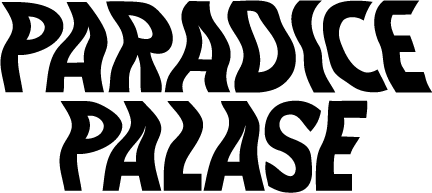Interview: Chris Mireles
Christopher Mireles is a self-taught artist living and working in New York, NY. Working primarily in oil, Mireles scrubs paint onto his canvas in layers, his brushstrokes articulating the careful examination of objects observed from life or imagination. His mark-making lends a palpable believability to his surreal tableaus. Throughout Mireles' practice, the artist balances humor with apprehension, and reality with the fantastical to build a world that is at once a dream and a dystopia.
Read our interview with Chris below!
Fish Again, 11 x 14 inches, oil on paper, 2024
PP: Walk us through a typical day in your studio or generally through your process to make new work.
CM: I am very fortunate to have space to paint in my apartment, so I don’t maintain a studio. On a good weekday, I can begin concentrating on painting or drawing around 9:00/9:30am. That generally gives me 2-3 hours to focus before I need to go to my day job. I like to draw in the evening to work out ideas for the next day.
Weekends are definitely more productive. I can get in 7-10 hours of painting, which is normally enough time to figure something out or make decent progress.
Bad Girl, acrylic on paper, 12 x 18 inches, 2020
The Lover, acrylic on paper, 18 x 24 inches, 2021
PP: What motivates you to make art?
CM: Hopefully it’s not too much of a nonanswer, but I try not to dissect my motivation all that much. I think about that Auden poem “In Memory of W.B. Yeats,” that says “poetry makes nothing happen . . . it survives in the valley of its making . . . a way of happening, a mouth.” I think of painting the same way. I’m not normally aiming to accomplish anything outside of the work. I think of it as a way of happening - a translation.
A lot of artists that I admire (thinking about William Hawking, for example) did excellent work that I suspect was motivated by compulsion. I can relate to that. The paintings I feel are most successful retain some of that energy. I think I’m less successful when I get distracted by the subject matter and start tidying up the disorder.
PP: What is one goal you are aiming to achieve this year for your art practice?
CM: I started painting in 2019 with no training or education, so I still feel very much like a novice. There’s this great quote from Ira Glass about the creativity gap, where you spend the first few years as an artist making work that isn’t quite satisfying to you, because it doesn’t rise to the level of your taste. I think the best way through that phase is to produce as much work as you can. This year, I’d love to make a ton of paintings, and ideally start getting the hang of making work that sings to me.
Smoker, oil on canvas, 11 x 14 inches, 2023
PP: What is your favorite medium and why?
CM: I love painting with oil because of how precise you can be with it. I don’t mean orderly, per se - you can really lean into chaos and disorder with oil paint also. I mean more that you can make it work in so many very specific ways depending on how you mix and apply it - you’re really only limited by your own skill, patience and knowledge.
PP: What is your process like for critiquing your own work?
CM: Early on, I had a lot of frustration in trying to critique my own work, because I couldn’t articulate to myself (let alone others) how or why certain elements were successful or not. Starting in 2020, I took a few group crit classes (shout out to NYC Crit Club) which taught me a ton about how to engage with my practice and find merit or fault in a way that feels constructive.
When I critique my work now, I try to answer how things are working or failing, which helps me to understand where I’m being too precious or too lazy, or where I’ve hit on something good. Ultimately, I think there’s probably no substitute for conning other artists into critiquing your work. Highly encourage those who aren’t doing so already to find someone you trust to give you honest feedback.
To learn more about Chris’s work, see his Instagram and Website




